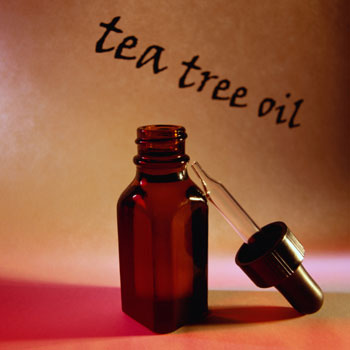Tea Tree Oil: What It’s Good For

Many people swear by tea tree oil for its health benefits. Tea tree oil is known for having antiseptic, antifungal and antimicrobial properties. Among the conditions it’s thought to treat are acne, eczema, yeast infections, lice, thrush, dandruff, acne and athlete’s foot to name a few. Although you’re likely to find it as an essential oil at the local health food store, it’s also an active ingredient in shampoos, soaps, ointments, creams and other health and beauty products. For toenail fungus, some doctors recommend apply one to two drops of tea tree oil and rubbing it on and under the nail once a day. When it comes to cold sores, simply apply a few drops of pure tea tree oil onto the infected area. As for dry skin, use a brush to slough away dry skin and then follow up with a lotion made with tea tree oil. To soothe those sore muscles, add 10 drops or less of tea tree oil to warm bath water and soak for 20 minutes. Adding too much can cause irritation to the skin.Tea tree oil is also frequently used in dealing with acne. One concoction calls for one drop of tea tree oil combined with a half cup milk or water. Mix ingredients together. Dab with cotton balls on the face. Let sit for 10 minutes. Rinse. For lice, add two drop of tea tree oil to four ounces of shampoo. If the outbreak is severe, combine a half cup of olive oil with eight drops of tea tree oil. Massage into scalp. Cover head with shower cap and sit for 30 minutes. Wash with tea tree oil-infused shampoo mixture. But buyer beware, tea tree oil is not without its own issues. It is believed to alter hormone levels and can cause blistering, itching, skin irritation and redness. It should never be ingested.

